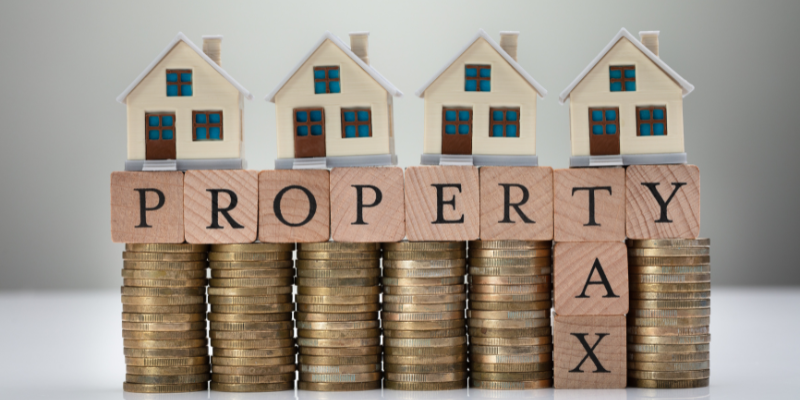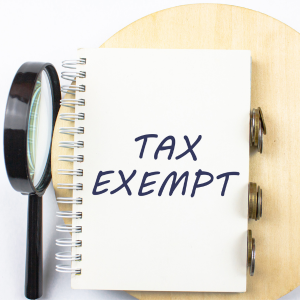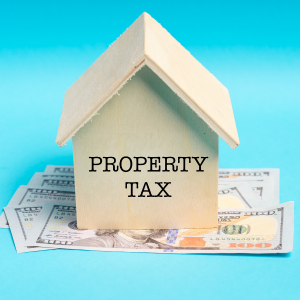
2025 Property Tax Rate in Fort Worth, TX
Fort Worth property taxes are expensive. Really expensive! The median effective rate here is 1.76%, which puts Fort Worth way above the national average of 1.02%. For a home worth $414,860 (pretty typical around here), you’re paying about $6,976 a year. That’s more than double what most Americans pay.
However, you’re not stuck with whatever number appears on your tax bill. There are exemptions you can claim and ways to reduce what you owe. This guide will tell you how much Fort Worth property taxes are and how to pay less.
What Are Property Taxes?
Property taxes are what you pay each year for owning real estate. Your local government calculates them based on your home’s value, and the money funds schools, roads, police, fire departments, parks, and virtually every public service Fort Worth offers.
Everyone who owns property pays them, whether you have a mortgage or own your place outright. Most mortgage companies collect a little each month and pay the bill for you when it’s due.
If you own your home free and clear, the bill is sent directly to you. The amount changes based on your property’s value and the tax rate in your specific area, which is why your bill can fluctuate from year to year.
Looking to reduce financial stress from high property taxes or other ownership costs? Company That Buys Houses offers hassle-free solutions for homeowners, including fast cash offers for houses in Fort Worth and its surrounding areas. Call us today to explore your best options!
What is the Property Tax Rate in Fort Worth, TX?
Fort Worth‘s median effective property tax rate is 1.76%. So you’re paying about $1.76 for every $100 your home is worth after exemptions get applied.
If your home’s assessed value is $385,512, your annual bill comes out to roughly $6,976. That’s almost $5,000 more than what most Americans pay.
Note, however, that your actual rate depends on exactly where you live in the city. Property taxes aren’t just one charge. They’re essentially a combination of taxes from the city, county, school district, and other local entities, such as hospital districts or community colleges.
Each one sets its own rate based on its needs, and then all these rates are added together. That’s why your neighbor across town might be paying a different rate than you.
Most Fort Worth homeowners end up with an effective rate of around 1.53% once the homestead exemption and other deductions are applied. That’s closer to what you’ll actually see on your bill.
Median Tax Rates in Fort Worth
The median effective tax rate in Fort Worth is 1.53% after accounting for exemptions. Tarrant County’s median is at 1.52%, and the Texas state median is 1.48%. So Fort Worth‘s right in line with the rest of the area, maybe just a hair higher.
But when you compare it to the national median of 1.02%, that’s where things get painful. You’re paying about 50% more than the typical American homeowner just for living in this area.
A home assessed at $385,512 with a 1.53% rate means a $5,898 tax bill. At the national rate, that same home would only cost you about $3,932. The extra $2,000 a year really adds up, especially if you plan to stay for a long time or own multiple properties.
How Does Fort Worth Compare to Other Cities?
Fort Worth‘s median effective tax rate of 1.53% is significantly higher than that of most major cities nationwide. As mentioned, the national median sits at 1.02%, which means homeowners in Fort Worth are paying about 50% more than the average American.
Within Texas, Fort Worth‘s rates are generally comparable to those of other major cities in the state. Tarrant County’s median is 1.52%, and the state median is 1.48%, so you’re not getting hit any harder than people in Houston or Dallas.
However, Texas doesn’t have a state income tax, so property taxes are how the state makes up for that missing revenue. Cities in states with income tax tend to have lower property tax rates because they’re getting money from other sources.
So yeah, you’re keeping more of your paycheck, but your home is costing you more to own. It’s basically a trade-off, and depending on your income and home value, it might or might not work in your favor.
How Are Property Taxes Calculated?

Property taxes get calculated by multiplying your home’s assessed value by your local tax rate. Sounds simple enough, but there’s actually more going on behind the scenes.
Tarrant County’s appraisal district estimates what your property is worth every year. That’s your market value. Then they subtract any exemptions you qualify for, like the homestead exemption, and that gives you your assessed value. That assessed value is what gets multiplied by your tax rate to spit out your final bill.
So let’s say your home’s market value is $400,000. You’ve got a homestead exemption that knocks off $100,000. Your assessed value is now $300,000. Multiply that by Fort Worth‘s median rate of 1.53% and your tax bill comes out to $4,590.
The rate itself originates from all the local entities we discussed earlier, including the city, county, school district, and special districts. Each one adds their piece to the puzzle. That’s why two homes worth the same amount can have different tax bills if they’re in other neighborhoods with different taxing entities involved.
Market Value vs. Assessed Value: What’s the Difference?
Market value and assessed value sound like the same thing, but they’re not. Market value is the amount someone would pay for your home if you were to sell it tomorrow. It’s based on your location, the condition of your house, and current market conditions.
Tarrant County’s appraisal district determines this annually and sends you a notice in the spring, typically by mid-April.
Assessed value is your market value minus any exemptions you’ve qualified for. This is the number that actually matters because it’s what gets multiplied by your tax rate to calculate your bill.
Therefore, if your home’s market value is $400,000 but you have a $100,000 homestead exemption, your assessed value is reduced to $300,000. That’s a significant benefit because you’re only taxed on $300,000 instead of the full amount.
When you get your assessment notice each spring, you’ll see both numbers listed along with an estimate of what your tax bill will be. Always verify these numbers, as the appraisal district may occasionally make errors. If an error is found, you can appeal it.
Key Dates and Deadlines
In Fort Worth, missing these deadlines can cost you. There are a few key dates you need to have on your radar if you want to stay on top of your property taxes and avoid penalties.
When You’ll Receive Your Assessment Notice
Your assessment notice typically appears in the spring, usually by mid-April. This is the letter from Tarrant County informing you of their assessment of your home’s value and the corresponding tax bill.
Don’t just toss it in a drawer. Please review the numbers carefully, as this is your opportunity to catch any mistakes before they become a problem.
Important Tax Calendar Dates
The appeal deadline is May 15th, so if you think your home’s been overvalued, you’ve got about a month after getting your notice to file a protest. Your actual tax bill gets issued on October 1st, and the first payment is due by January 31st of the following year.
If you miss that deadline, you’ll start racking up penalties and interest. This just makes an already expensive bill even worse.
Where and How to Pay Your Taxes
You can pay online through Tarrant County’s tax portal, which is really the easiest way to do it. They have a new system that’s quite user-friendly, and you don’t even need to create an account if you don’t want to.
You can also pay in person at any of their offices, mail a check, or set up paperless billing to skip receiving a paper statement. Please ensure you pay by the deadline, as late fees accumulate quickly.
Property Tax Exemptions in Fort Worth

Exemptions lower your home’s taxable value, which means you end up paying less. Texas offers several types, and you might qualify for more than one.
Important Note: You can apply for all of these through the Tarrant Appraisal District, and the process is entirely free of charge. Don’t pay anyone to do this for you. Scammers often charge people for tasks that can be easily completed by themselves.
Homestead Exemption
This is the big one. If you own and live in your home as your primary residence, you can get a homestead exemption that reduces your taxable value. School districts are required to offer at least a $100,000 exemption, and some local entities offer additional amounts.
Additionally, it caps the annual increase in your assessed value at 10%, which protects you from sudden market fluctuations.
Over-65 Exemption
Once you hit 65, you qualify for an additional exemption on top of your homestead. School districts have to give you at least an extra $10,000 off your taxable value, and many local taxing entities offer their own breaks, too.
Some school districts even freeze your school taxes completely once you turn 65.
Disability Exemption
If you’re disabled (according to Social Security Administration standards), you get the same exemptions as someone over 65. This includes both the standard homestead and the additional amount, as well as potential tax freezes, depending on your local entities.
Disabled Veteran Exemption
This one’s based on your disability rating. Veterans with a 10% to 29% rating receive a $5,000 discount. It goes up from there. 30% to 49% gets $7,500, 50% to 69% gets $10,000, and 70% to 100% gets $12,000.
If you’re 100% disabled or unemployable due to a service-connected disability, you might qualify to have your property taxes waived completely.
Surviving Spouse Exemption
If your spouse was a disabled veteran or over 65 and had an exemption, you can keep that exemption after they pass away as long as you don’t remarry and you keep living in the home.
Does Homeowners Insurance Cover Property Taxes?
Nope, homeowners’ insurance doesn’t cover your property taxes. They’re entirely separate things.
Your insurance covers damage to your home from fires, storms, theft, and stuff like that. Property taxes are just what you owe the government for owning real estate, and insurance companies have nothing to do with it.
However, if you have a mortgage, your lender probably collects money for both insurance and property taxes through your escrow account every month.
You make one payment, and the lender divides it up and pays your insurance and taxes when they’re due. So it feels like they’re all bundled together, but really, your lender is just managing the payments on your behalf.
If you own your home outright, you’ll pay your insurance company and the county separately. It becomes super obvious that they’re two totally different bills.
Property Taxes for Investment Properties in Fort Worth
Investment properties get hit way harder with property taxes because you can’t claim a homestead exemption. That exemption is only for your primary residence, the place you actually live in.
That means if you’re renting out a property in Fort Worth, you’re paying taxes on the full assessed value without the nice deduction of $100,000 or more. Your tax bill’s going to be a lot higher than if you lived there yourself.
The good news is you can deduct property taxes as a business expense when you file your income taxes. However, you should factor the full tax amount into your rental income calculations before making a purchase.
A rental property assessed at $300,000 with a 1.53% rate results in approximately $4,590 in annual property taxes. That’s $382 a month you need to cover, in addition to your rent, mortgage, insurance, and maintenance.
Additionally, that number increases every time the county reassesses your property. If your rental income is already tight, property taxes can quickly eat into your profit. When that happens, cash house buyers in Dallas, Fort Worth, and surrounding cities in Texas can offer a quick and hassle-free way to sell your investment property without incurring additional financial strain.
How to Appeal Your Property Tax Assessment

If you think the appraisal district overvalued your home, you can fight it. Appealing your assessment is one of the most effective ways to lower your tax bill, and many homeowners do it every year. Here’s how to actually do it.
Step 1: Review Your Assessment Notice
When your notice arrives in April, check the market value they assigned to your home. Does it seem too high based on what similar homes in your area have sold for?
Additionally, review the property details. Sometimes, they have the wrong square footage, or they’re counting features that your home doesn’t have.
Step 2: Gather Your Evidence
Pull up recent sales of similar homes in your neighborhood, especially ones that sold for less than your assessed value. Please take photos of any damage or issues with your property that might lower its value.
Check for foundation cracks, roof problems, and outdated features, as well as any other issues that may make your home worth less than they’re claiming. The more evidence you have, the stronger your case.
Step 3: File Your Protest by May 15th
You can file online through the Tarrant Appraisal District’s website, and the process is relatively easy. Fill out the protest form and explain why you think your home’s been overvalued. Don’t miss the May 15th deadline, or you’ll be stuck with their number for the year.
Step 4: Attend Your Hearing or Negotiate
The appraisal district will schedule a hearing where you present your evidence. Sometimes they’ll offer to settle with you before the hearing even happens if you have good evidence.
At the hearing, please present your comps and photos, explain your case, and request a lower valuation. If they agree, your assessed value drops and so does your tax bill. If they don’t budge, you can appeal to the Appraisal Review Board for a second shot at it.
Why Are Fort Worth Property Tax Rates So High?
Why are Fort Worth‘s property taxes so high compared to the rest of the country? It all comes down to how Texas funds its government.
Texas doesn’t have a state income tax, which sounds great when you’re looking at your paycheck, but that money has to come from somewhere. Property taxes are essentially how the state generates its revenue.
Local governments (cities, counties, and school districts) rely heavily on property taxes to fund everything from schools to roads to emergency services.
Fort Worth is a rapidly growing city with numerous new developments, and this growth translates to increased demand for services. New schools need to get built. Roads need maintenance. Police and fire departments need more staff and equipment. All of that costs money, and property taxes are the main way to pay for it.
Additionally, Tarrant County has one of the highest numbers of property tax accounts in Texas, so the tax burden is spread across a large number of properties.
The rates remain high because the needs persist at a high level. Unless Texas changes how it funds local governments, property owners will continue to foot the bill.
Property Taxes When Selling Your Home
When you sell your home fast in Fort Worth and other cities in Texas, property taxes don’t just disappear. They get prorated between you and the buyer based on the closing date. So if you close on July 1st and your annual tax bill is $6,000, you’re responsible for the first six months ($3,000) and the buyer covers the rest.
This is usually handled at closing, with the title company performing all the calculations and ensuring that everyone pays their share.
If you haven’t paid your current year’s taxes yet, the amount gets deducted from your proceeds at closing. And if your home’s value shot up recently, your tax bill might be higher than what you budgeted for when you first decided to sell.
That can eat into your profit if you’re not prepared. Some sellers also don’t realize that if they’re selling mid-year, they might still owe taxes for the previous year, depending on when the bill was issued and when they paid it.
It’s worth checking with your title company ahead of time so you know exactly what to expect.
Selling to Cash Buyers and Tax Considerations
If you’re selling to a cash buyer, the property tax process works pretty much the same way as a traditional sale. Taxes are still prorated at closing, based on when you hand over the keys. But cash sales can actually work in your favor because they close way faster.
Traditional sales can drag on for 30, 60, or sometimes 90 days, which means you’re covering more of the year’s property taxes. Cash buyers can close in as little as a week or two, so you end up responsible for a much smaller portion of the annual bill.
Another bonus? Cash buyers usually buy your home as-is, which means you’re not sinking money into repairs before you sell. If your home’s been assessed at a high value but needs work, you might be paying taxes on a value that doesn’t match what your home would actually sell for in its current condition.
Selling quickly to a cash buyer gets you out from under those taxes faster and saves you the headache of dealing with repairs, staging, and months of showings. Plus, there’s no risk of a deal falling through at the last minute. This means you’re not stuck paying another month or two of prorated taxes while you find a new buyer.
Contact us today to sell your home fast and avoid extra property taxes. Our team offers quick, hassle-free closings so you can save time, skip repairs, and move on your terms.
Frequently Asked Questions
Can I pay my Fort Worth property taxes in installments?
Yes, you can split your payment into quarterly installments if you qualify. You must request this option before your taxes are due, and there are specific eligibility requirements.
It’s a decent option if paying the full amount at once would put a strain on your budget. However, please note that if you miss one of the installment payments, the entire balance becomes due immediately.
What happens if I don’t pay my property taxes on time?
If you don’t pay property taxes on time, penalties and interest start piling up. You’ll be hit with a 6% penalty in February if you haven’t paid by January 31st, and it increases to 7% in March and 12% by July.
Interest also accrues at a rate of 1% per month. If you let it go too long without paying, the county can eventually place a lien on your property and even foreclose on it to collect what you owe.
Do I still owe property taxes if I’m behind on my mortgage?
Yep, property taxes are separate from your mortgage. Even if you’re behind on mortgage payments, property taxes are still due. Most mortgage companies collect property tax money through your escrow account and pay it on your behalf.
However, if you’re not paying your mortgage, that tax money might not be getting collected or paid either. The county is not involved in your mortgage situation. They just want their tax money.
How often does Tarrant County reassess property values?
Every single year. The appraisal district looks at your property annually and sends you a new assessment notice each spring. That’s why your tax bill can change from year to year, even if you didn’t do anything to your home. Market values shift, and the county adjusts your assessed value to match.
Can I get a refund if I overpaid my property taxes?
Yes, if you overpaid or if your assessed value got lowered after you already paid your bill, you can request a refund from Tarrant County. You’ll need to fill out a refund request form, and the process can take a few weeks to complete.
Don’t pay a third party to do this for you. It’s free to request a refund directly through the county.
Key Takeaways: Fort Worth, TX Property Tax Rate
Fort Worth property taxes are expensive, and there’s no way to avoid them. With a median effective rate of 1.53% and tax bills that can hit $6,976 or more, homeowners here pay significantly more than the national average. However, you have options to lower what you owe. Claim every exemption you qualify for, especially the homestead exemption if you live in your home.
If high property taxes are eating into your budget and you’re thinking about selling, cash buyers can help you move faster and avoid paying more than you need to. Company That Buys Houses offers quick closings. Contact us at (817) 623-5054 to receive a fair cash offer and close on your timeline. We make the selling process simple, stress-free, and tailored to your needs.
Helpful Fort Worth Blog Articles
- Documents Needed to Sell a House in Fort Worth, TX
- Capital Gains Tax After Selling a House in Fort Worth, TX
- Sell Home To Pay Off Debt in Fort Worth, TX
- Best Fort Worth, TX Property Managers
- Fort Worth, TX, Property Tax Rate
- Fort Worth, TX, Cost of Living
- Fun Facts About Fort Worth TX, and Hidden Gems in Fort Worth
- Your Guide to Fort Worth TX Closing Costs Calculator
- Can I Sell My House for Less Than Appraised Value in Fort Worth, TX
- Does a Seller Pay Closing Costs in Fort Worth TX?

